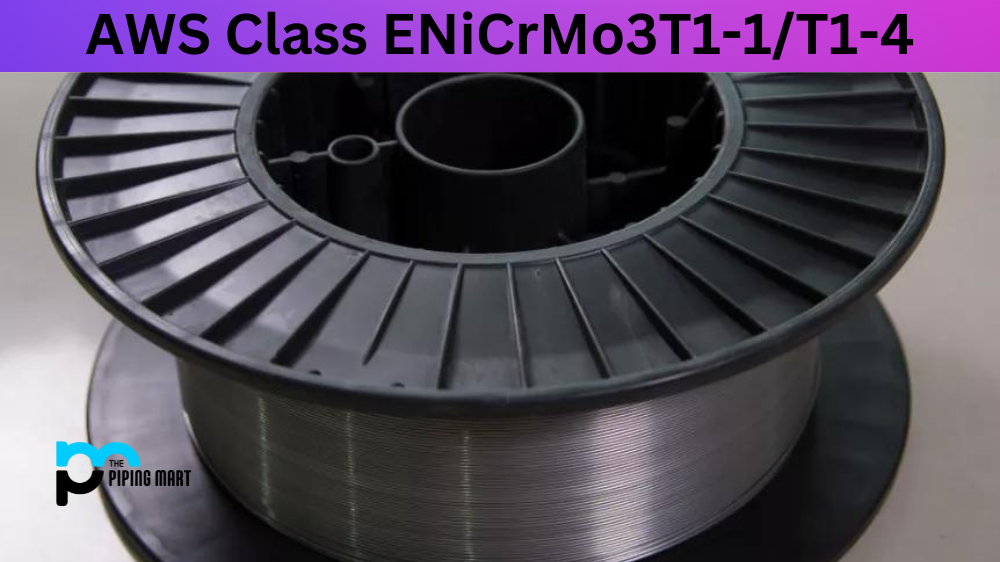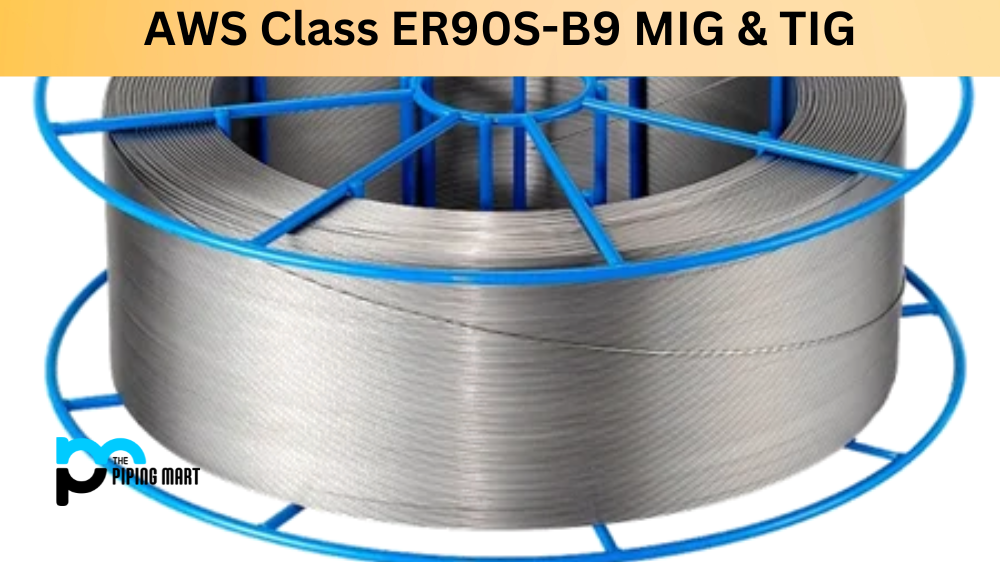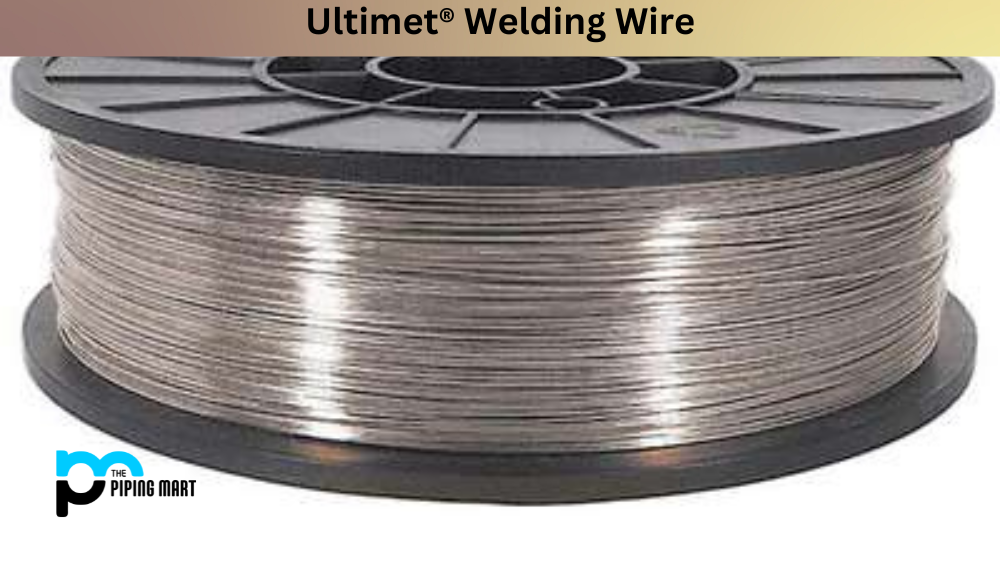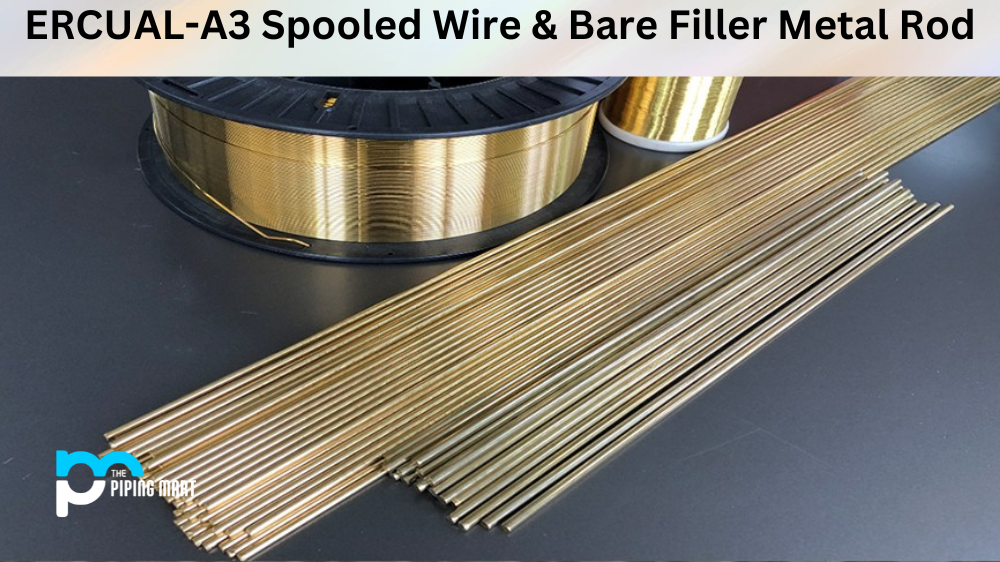AWS Class ENiCrMo3T1-1/T1-4 Flux core wire is a nickel-chromium-molybdenum alloy widely used in various industries due to its exceptional properties. The alloy is known for its excellent resistance to high-temperature oxidation, corrosion, and erosion, making it perfect for high-stress applications in harsh environments. This blog post will discuss the composition, physical and mechanical properties, heat treatment, corrosion resistance, and uses of AWS Class ENiCrMo3T1-1/T1-4.
What is AWS Class ENiCrMo3T1-1/T1-4?
AWS Class ENiCrMo3T1-1/T1-4 Flux Core filler Wire is a nickel-chromium-molybdenum (NiCrMo) alloy steel electrode welding high-temperature components in the aerospace, power generation and petrochemical industries. This type of welding electrode provides excellent mechanical properties at elevated temperatures and superior resistance to oxidation, corrosion and wear. The NiCrMo alloy has exceptional strength and toughness even when exposed to extreme temperatures up to 1150°C (2102°F). The T1-1/T1-4 designation refers to the tensile strength range: T 1–100 = 80 ksi minimum, T 1–114 = 100 ksi minimum, while the T 4 indicates “Postweld Heat Treatment is required”. Additionally, a specific level of Nickel gets added on top of chromium & molybdenum for enhanced weldability characteristics.
ENiCrMo3T1-1/T1-4 Flux Core Wire Composition
AWS Class ENiCrMo3T1-1/T1-4 Flux Core Wire is a nickel-chromium-molybdenum alloy that contains 62-67% nickel, 19-23% chromium, 7-9% molybdenum, and small amounts of iron, manganese, silicon, and carbon. The alloy is typically used as welding consumables, including electrodes and wires.
|
AWS Spec |
Weld Metal Analysis (%) |
|
| Carbon (C) |
0.10 |
0.02 |
| Chromium (Cr) |
20.0-23.0 |
21.1 |
| Copper (Cu) |
0.50 |
0.007 |
| Iron (Fe) |
1.00* |
0.44 |
| Manganese (Mn) |
0.50 |
0.13 |
| Molybdenum (Mo) |
8.0-10.0 |
9.06 |
| Nickel (Ni) | 58.0 min | 64.7 |
| Phosphorus (P) |
0.02 |
0.004 |
| Silicon (Si) |
0.50 |
0.28 |
| Sulfur (S) |
0.015 |
0.002 |
| Titanium (Ti) |
0.40 |
0.22 |
| Niobium (Nb) + Tantalum (Ta) |
3.15-4.15* |
3.68 |
ENiCrMo3T1-1/T1-4 Flux Core Wire Physical Properties
AWS Class ENiCrMo3T1-1/T1-4 has a density of 8.4 g/cm3 and a melting point of 1360-1420℃. The alloy has a coefficient of thermal expansion of 14 µm/m·K at room temperature and a specific heat capacity of 440 J/kg·℃. Furthermore, the alloy has a high thermal conductivity of 17 W/m·K and a low electrical resistivity of 1.23 µΩ·m.
ENiCrMo3T1-1/T1-4 Flux Core Wire Mechanical Properties
AWS Class ENiCrMo3T1-1/T1-4 Flux Core Wire possesses excellent mechanical properties that suit high-stress applications. The yield strength of the alloy ranges from 300-600 MPa, and the ultimate tensile strength ranges from 600-900 MPa. Additionally, the alloy has moderate elongation and reduced area values, making it suitable for use in parts undergoing severe deformation.
| Tensile Strength | 109,000 psi |
|---|---|
| Yield Strength | 65,000 psi |
| Elongation (%) | 46% |
ENiCrMo3T1-1/T1-4 Flux Core Wire Trade Names
| Class | UNS | Oxford Alloys |
| ENiCrMo3T1-1/T1-4 | W86625 | Alloy 625T-1 |
ENiCrMo3T1-1/T1-4 Flux Core Wire Parameters
| Diameter | Position |
Optimum |
Amperage Range | Voltage Range | ||
|
Amperage |
Voltage |
WFS (ipm) |
||||
| .045” |
Flat |
190 |
28 |
400 |
125-215 |
25-29 |
|
Out of Position |
155 |
25 |
320 |
125-175 |
24-27 |
|
| 1/16” |
Flat |
200 |
27 |
225 |
150-230 |
24-29 |
|
Out of Position |
175 |
25 |
175 |
150-190 |
24-26 |
|
ENiCrMo3T1-1/T1-4 Flux Core Wire Uses
AWS Class ENiCrMo3T1-1/T1-4 Flux Core Wire is widely used in various industries due to its excellent properties. The alloy is used in the aerospace, automotive, oil and gas, and marine industries. The primary use of the alloy is in the manufacture of welding wire consumables, including electrodes and wires. The alloy’s resistance to high-temperature oxidation and erosion makes it perfect for use in parts that undergo high stress and harsh environments.
ENiCrMo3T1-1/T1-4 Flux Core Wire Heat Treatment
AWS Class ENiCrMo3T1-1/T1-4 Flux Core Wire is a heat-treatable alloy that can be annealed, solution treated, or age-hardened. Annealing the alloy involves heating it to 830-870℃, holding it for 1-4 hours, and cooling it slowly. Solution treatment involves heating the alloy to 1030-1070℃, quenching it in water or oil, and tempering it at 750-870℃. Age-hardening the alloy involves heating it to 760-870℃ for 15-24 hours and then cooling it in water.
ENiCrMo3T1-1/T1-4 Flux Core Wire Corrosion Resistant
AWS Class ENiCrMo3T1-1/T1-4 Flux Core Wire has excellent corrosion resistance, making it suitable for harsh environments. The alloy is resistant to high-temperature oxidation, corrosion, and erosion, including pitting and crevice corrosion. The alloy’s corrosion resistance is due to the presence of chromium and molybdenum, which form a protective oxide layer on the surface of the alloy.
Conclusion
AWS Class ENiCrMo3T1-1/T1-4 is a versatile and reliable alloy with excellent properties, making it perfect for high-stress applications in harsh environments. The alloy’s composition, physical and mechanical properties, uses, heat treatment and corrosion resistance were discussed in this blog post. AWS Class ENiCrMo3T1-1/T1-4 is widely used in various industries, including aerospace, automotive, oil and gas, and marine, due to its exceptional properties. Its resistance to high-temperature oxidation, corrosion, and erosion, among others, makes it one of the most sought-after alloys in the welding alloy consumables market.

A passionate metal industry expert and blogger. With over 5 years of experience in the field, Palak brings a wealth of knowledge and insight to her writing. Whether discussing the latest trends in the metal industry or sharing tips, she is dedicated to helping others succeed in the metal industry.




